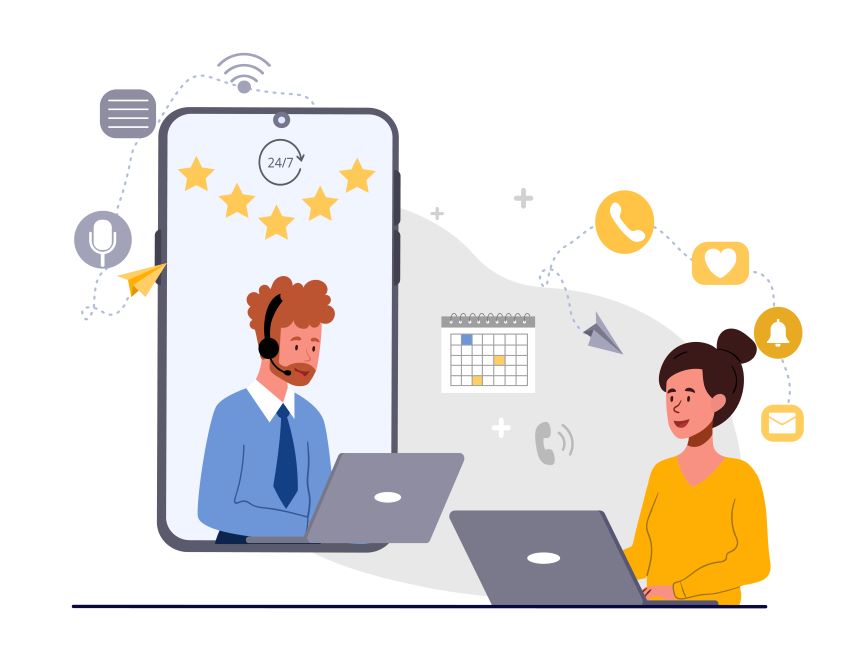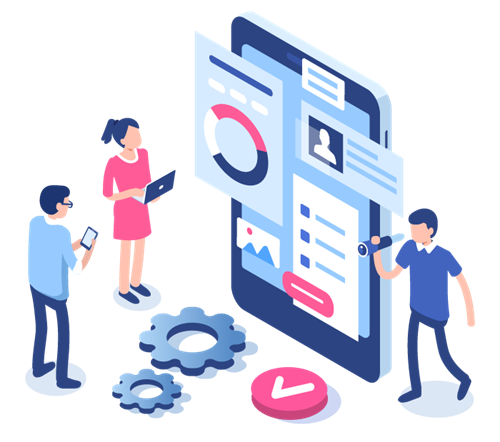What to Expect at Microsoft Ignite 2023
by Shaundalee Carvalho | Published On November 6, 2023

We’re less than 2 weeks away from Microsoft Ignite! If you’ve never attended the conference, read on to learn more about what it is and what we’re expecting this year.
What is Microsoft Ignite?
Microsoft Ignite is an annual conference where IT professionals, IT decision makers, security professionals, data professionals, and developers have the opportunity to connect with each other and learn from Microsoft and its partners. Attendees can learn about the latest innovations in the industry, network, and gain new skills. This year, the conference will be held in-person in Seattle, from November 14th to 17th, and virtually, from November 15th to 16th.
What to Expect for 2023
As a long-time Microsoft partner, ComputerTalk will be attending the conference. We will be represented by our Chief Software Architect, Chris Bardon. We spoke to Chris to find out what he’s looking forward to at this year’s conference. Read on to see what he said:
So this may be surprising based on my impressions from last year's show, but I registered for Microsoft Ignite in Seattle again this year. Given that it's in Seattle, I don't think it'll be nearly as big as the last pre-pandemic one in 2019, but I expect that there will be lessons learned from last year (hopefully better session spaces, and more Microsoft SMEs on site).
The real thing that's changed though is that there's a monumental technology shift that has brought a new class of solution to the forefront, and I want to meet and learn from the people who are building it.
AI is nothing new, and I've met several developers and PMs on the Cognitive Services team over the years, and we've built some cool solutions using the technology. Microsoft 365 Copilot seems different though, and up until now, there's been a lot of promises, vagueness, and hand waving about how it's going to work.
I was at an event in Toronto at the beginning of September, and the presentation on Copilot internals was delivered by an MVP who hadn't even had a chance to go hands-on with the feature yet. He did a good job, all things considered, but I left with more questions than answers. This is what cemented the decision to make the trip to Seattle again; if I was going to learn about how this feature really works, and what it can do with ice Contact Center, going straight to the source was my best option.
I've read about the semantic graph features, but I really want to understand how everything is being indexed. I also want to see how I could extend the index with my own data, leveraging the existing graph permission model, and then seeing how that data might be incorporated into the existing Copilot surfaces.
I hope to also see what's happening with the Teams phone Copilot, since having a solution like this included in the Microsoft 365 Copilot license could be a huge advantage for Teams-native contact centers like ice. I'm also interested in seeing the evolution of the Copilot stack from what was presented at Microsoft Build. Again, lots of promises, but so far nothing that's tangible that I can start building with. Is there a value there above what I can already do with things like LangChain and my own semantic search?
Finally, having built with Azure OpenAI for months now, I'm hoping to compare notes with other attendees/presenters to see what has and hasn't worked. Given the non-deterministic nature of these large language models, there is a lot of experimentation happening, which is when it's most exciting to learn from your peers. I'm really hoping to see what's happening with generative AI models against relational data, since this is an area I think could really be game-changing for how our customers interact with ice.
Outside of that, I hope to see how other AI services have advanced in the last year. For example, Cognitive Services just announced a massive price reduction on bulk transcription and improvements to their models, so I'm looking forward to meeting with that team to talk about what's new. I'd also like to see the intersection between things like traditional language understanding and generative AI, and whether there's anything coming to help use one to supplement the other.
I’m also looking forward to connecting with the Teams platform group and discussing what our priorities are for the next year. It will be good to put some faces to the names in the Azure Communication Services group, where I’m hoping for some more news on progress with ACS/Teams native interop (especially for ad-hoc chat), since that’s a high-value integration for us.
The best reasons to go to a conference like this are the opportunities they afford to come up with new ideas. They’re really a great “think week” where I can disconnect from the day-to-day stuff and see what’s out there. I’ve lost count of the number of product features that have come out of a side conversation with a presenter, SME, or other attendees. These can be new ways to use existing tech, new tech that I didn’t know about, solutions to problems I’ve been blocked on, or hearing about some pain point that they have with their collaboration and communications solutions.
Like I said in last year's blog, the reason Ignite was always great is that it was the one time a year everyone was in the same place, so you had the opportunity to run into an amazing variety of people. Hopefully this year brings some of that back.
To learn how last year’s conference went, check out Chris’ review.
Interested in connecting with us at the conference this year? Contact us here!
More from our blog
 Leverage a secure and trusted connectivity model.
Leverage a secure and trusted connectivity model.
 Boost customer satisfaction with call center optimization strategies. Learn how to effectively measure and meet vital KPIs to excel in today's competitive market
Boost customer satisfaction with call center optimization strategies. Learn how to effectively measure and meet vital KPIs to excel in today's competitive market
.png?sfvrsn=e40a0534_1) On Wednesday, February 17th, ComputerTalk presented their latest Slice of ice webinar: Connect with Customers on Any Channel. In this session, account owner Vithusan Jegatheeswaran discussed contact center trends and challenges, the meaning of omnichannel, how ice can help your...
On Wednesday, February 17th, ComputerTalk presented their latest Slice of ice webinar: Connect with Customers on Any Channel. In this session, account owner Vithusan Jegatheeswaran discussed contact center trends and challenges, the meaning of omnichannel, how ice can help your...

